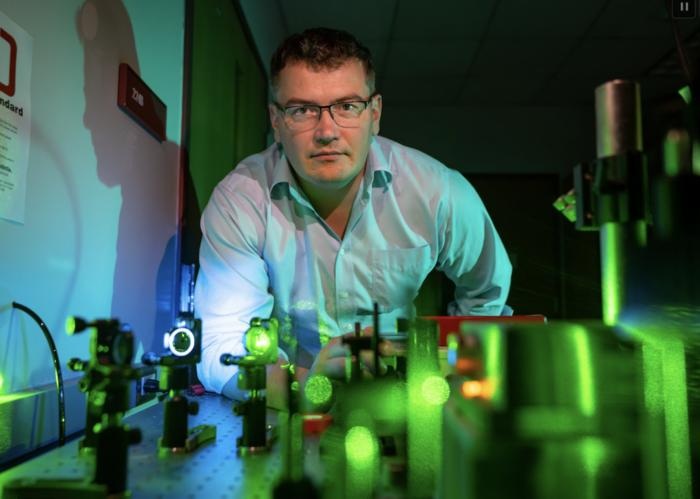Respiratory Discovery Could Improve Survival of COVID-19 Intensive Care Patients
|
By HospiMedica International staff writers Posted on 15 Dec 2021 |
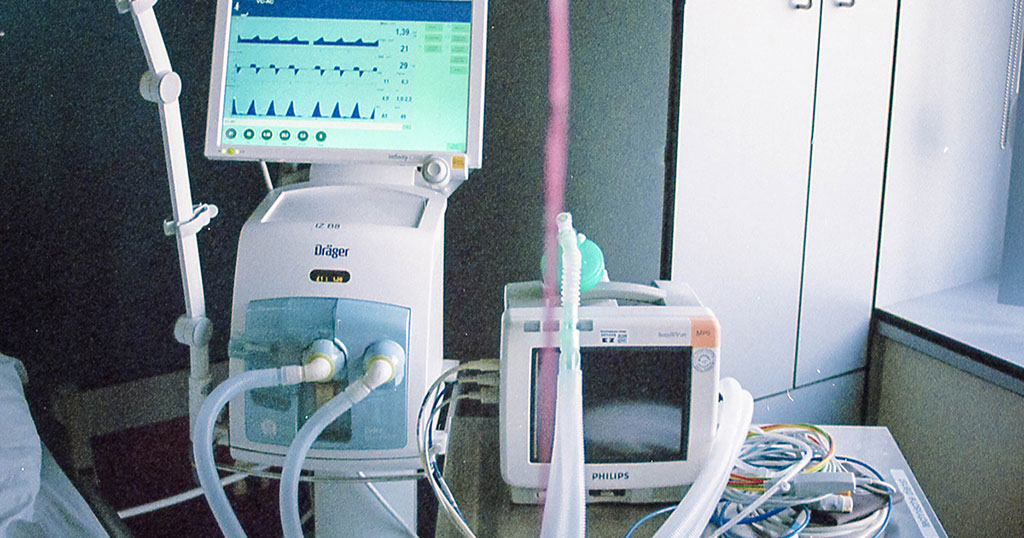
A clinical trial has revealed one reason why COVID-19 patients on ventilators have trouble breathing, and how refining a treatment could help save lives.
The COVID-19 virus latches onto cells deep in our lungs that produce surfactant – a complex mixture which lines our lungs’ air sacs and is essential for breathing. The research team at the University of Southampton (Southampton, UK) and University College London (London, UK) has shown COVID-19 patients on ventilators had less surfactant, and discovered why giving extra surfactant doesn’t always work. They suggest that, by giving surfactant for longer, more intensive care patients could survive.
Surfactant helps to reduce the surface tension of water that lines the air sacs of the lungs, making it easier to breathe. It was first found to be important in premature babies, who have less surfactant when they are born. This can lead to a condition known as Infant Respiratory Distress Syndrome, which is routinely treated successfully by given artificial surfactant to top up their surfactant levels and help them breathe more easily. A similar condition in adults, known as Adult Respiratory Distress Syndrome (ARDS), affects critically ill patients with severe COVID-19.
The new pilot study showed that 10 COVID-19 patients with ARDS who were on ventilators had less surfactant than healthy people. The investigators gave the patients Alveofact, a surfactant often used to treat premature babies, as a fine mist into their lungs, and studied how the composition of the surfactant changed. Surfactant is naturally absorbed and replaced by the body over time. But their results show a particularly rapid turnover of the artificial surfactant. It is the first study to show this in COVID-19 patients. This rapid turnover could explain why the benefits of giving replacement surfactant only last for a short while. Giving it for a longer period, they suggest, could help save lives.
“This has very significant implications for the design of future treatments for severe COVID-19,” said Dr. Ahilanandan Dushianthan, a Consultant in General Intensive Care at University Hospital Southampton. “We found that replacement surfactant rapidly cleared with a half-life of about seven hours. This indicates that multiple surfactant doses over a number of days will be required to support breathing while the lung cells repair after the infection passes.”
Related Links:
University of Southampton
University College London
Latest COVID-19 News
- Low-Cost System Detects SARS-CoV-2 Virus in Hospital Air Using High-Tech Bubbles
- World's First Inhalable COVID-19 Vaccine Approved in China
- COVID-19 Vaccine Patch Fights SARS-CoV-2 Variants Better than Needles
- Blood Viscosity Testing Can Predict Risk of Death in Hospitalized COVID-19 Patients
- ‘Covid Computer’ Uses AI to Detect COVID-19 from Chest CT Scans
- MRI Lung-Imaging Technique Shows Cause of Long-COVID Symptoms
- Chest CT Scans of COVID-19 Patients Could Help Distinguish Between SARS-CoV-2 Variants
- Specialized MRI Detects Lung Abnormalities in Non-Hospitalized Long COVID Patients
- AI Algorithm Identifies Hospitalized Patients at Highest Risk of Dying From COVID-19
- Sweat Sensor Detects Key Biomarkers That Provide Early Warning of COVID-19 and Flu
- Study Assesses Impact of COVID-19 on Ventilation/Perfusion Scintigraphy
- CT Imaging Study Finds Vaccination Reduces Risk of COVID-19 Associated Pulmonary Embolism
- Third Day in Hospital a ‘Tipping Point’ in Severity of COVID-19 Pneumonia
- Longer Interval Between COVID-19 Vaccines Generates Up to Nine Times as Many Antibodies
- AI Model for Monitoring COVID-19 Predicts Mortality Within First 30 Days of Admission
- AI Predicts COVID Prognosis at Near-Expert Level Based Off CT Scans
Channels
Critical Care
view channel
AI Tool Reduces Serious Complications and Readmissions After Colorectal Cancer Surgery
Readmissions and complications after colorectal cancer surgery remain a major challenge for both patients and healthcare systems. These setbacks increase suffering, prolong recovery, and result in high... Read moreTime-Released Gel Eliminates Residual Brain Tumor Cells Post Resection
High-grade gliomas are among the most aggressive brain tumors, with a poor prognosis even after surgical removal. Standard chemoradiotherapy only modestly improves survival, while infiltrative residual... Read moreSurgical Techniques
view channel
World's First Transcatheter Smart Implant Monitors and Treats Congestion in Heart Failure
Heart failure is one of the leading causes of hospitalization worldwide, with millions of patients requiring ongoing treatment to manage congestion. Current therapies often involve tracking remotely measured... Read more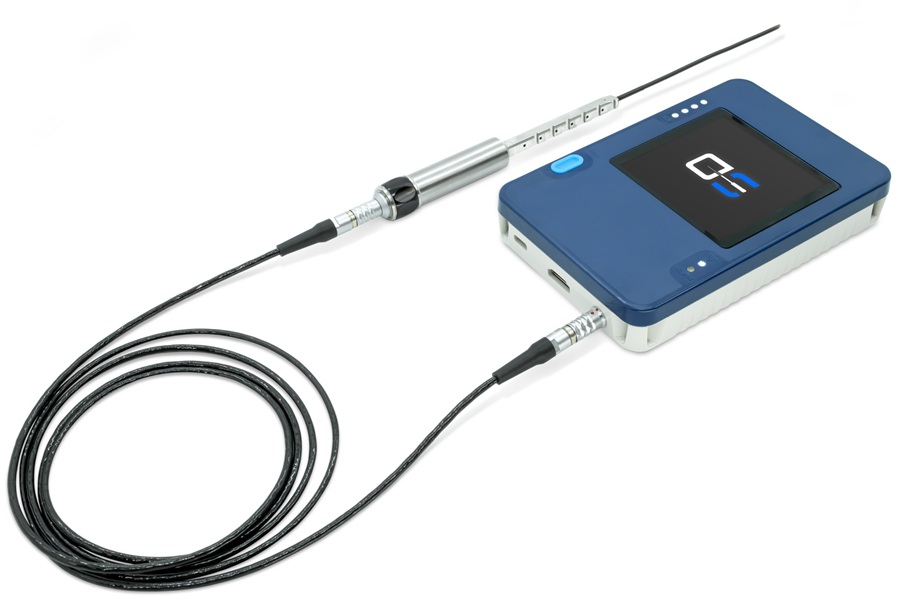
Hybrid Endoscope Marks Breakthrough in Surgical Visualization
For more than three decades, surgical endoscopy has depended on either rigid or flexible scopes, each with major drawbacks. Rigid scopes offer precision but limit maneuverability, while flexible scopes... Read more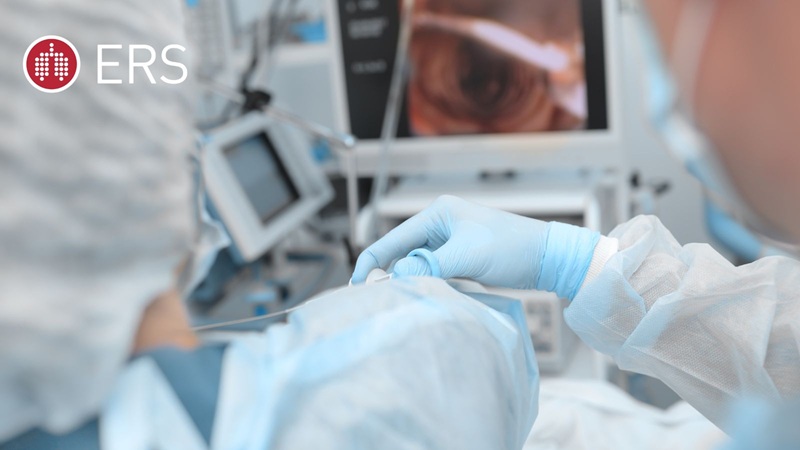
Robot-Assisted Bronchoscope Diagnoses Tiniest and Hardest to Reach Lung Tumors
Lung cancer is one of the deadliest cancers in Europe, killing around a quarter of a million people annually. Survival rates are much higher when tumors are diagnosed at an early stage, but the tiniest... Read more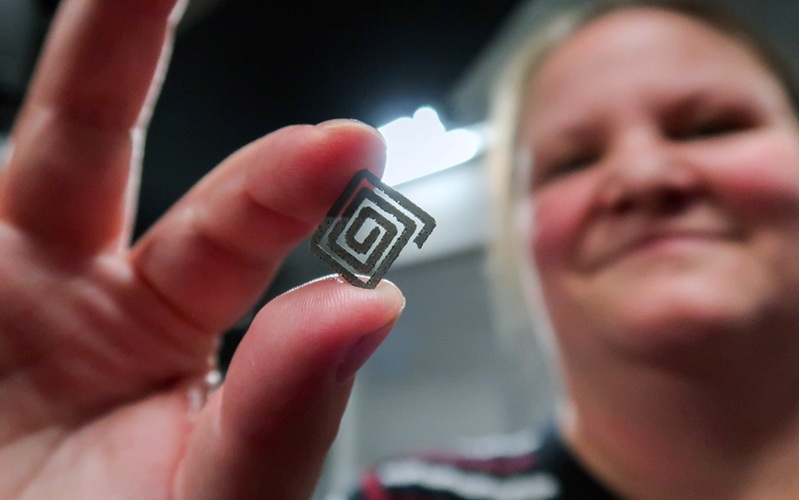
Diamond-Titanium Device Paves Way for Smart Implants that Warn of Disease Progression
Medical implants such as stents, prosthetics, and drug-release systems often rely on batteries that take up space, wear out, and eventually require replacement surgery. These limitations increase risks... Read morePatient Care
view channel
Revolutionary Automatic IV-Line Flushing Device to Enhance Infusion Care
More than 80% of in-hospital patients receive intravenous (IV) therapy. Every dose of IV medicine delivered in a small volume (<250 mL) infusion bag should be followed by subsequent flushing to ensure... Read more
VR Training Tool Combats Contamination of Portable Medical Equipment
Healthcare-associated infections (HAIs) impact one in every 31 patients, cause nearly 100,000 deaths each year, and cost USD 28.4 billion in direct medical expenses. Notably, up to 75% of these infections... Read more
Portable Biosensor Platform to Reduce Hospital-Acquired Infections
Approximately 4 million patients in the European Union acquire healthcare-associated infections (HAIs) or nosocomial infections each year, with around 37,000 deaths directly resulting from these infections,... Read moreFirst-Of-Its-Kind Portable Germicidal Light Technology Disinfects High-Touch Clinical Surfaces in Seconds
Reducing healthcare-acquired infections (HAIs) remains a pressing issue within global healthcare systems. In the United States alone, 1.7 million patients contract HAIs annually, leading to approximately... Read moreHealth IT
view channel
Printable Molecule-Selective Nanoparticles Enable Mass Production of Wearable Biosensors
The future of medicine is likely to focus on the personalization of healthcare—understanding exactly what an individual requires and delivering the appropriate combination of nutrients, metabolites, and... Read moreBusiness
view channel
Philips and Masimo Partner to Advance Patient Monitoring Measurement Technologies
Royal Philips (Amsterdam, Netherlands) and Masimo (Irvine, California, USA) have renewed their multi-year strategic collaboration, combining Philips’ expertise in patient monitoring with Masimo’s noninvasive... Read more
B. Braun Acquires Digital Microsurgery Company True Digital Surgery
The high-end microsurgery market in neurosurgery, spine, and ENT is undergoing a significant transformation. Traditional analog microscopes are giving way to digital exoscopes, which provide improved visualization,... Read more
CMEF 2025 to Promote Holistic and High-Quality Development of Medical and Health Industry
The 92nd China International Medical Equipment Fair (CMEF 2025) Autumn Exhibition is scheduled to be held from September 26 to 29 at the China Import and Export Fair Complex (Canton Fair Complex) in Guangzhou.... Read more












